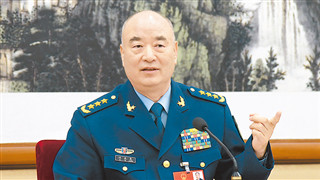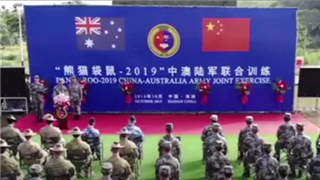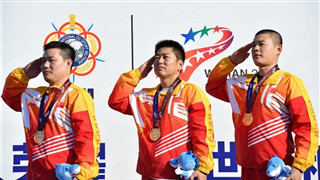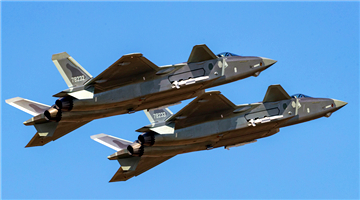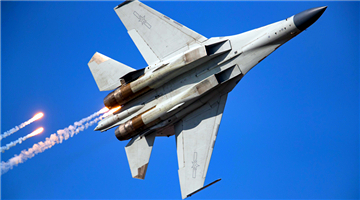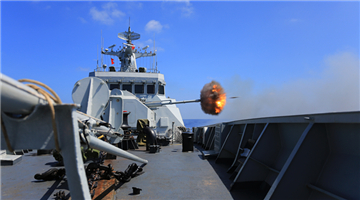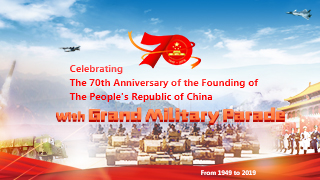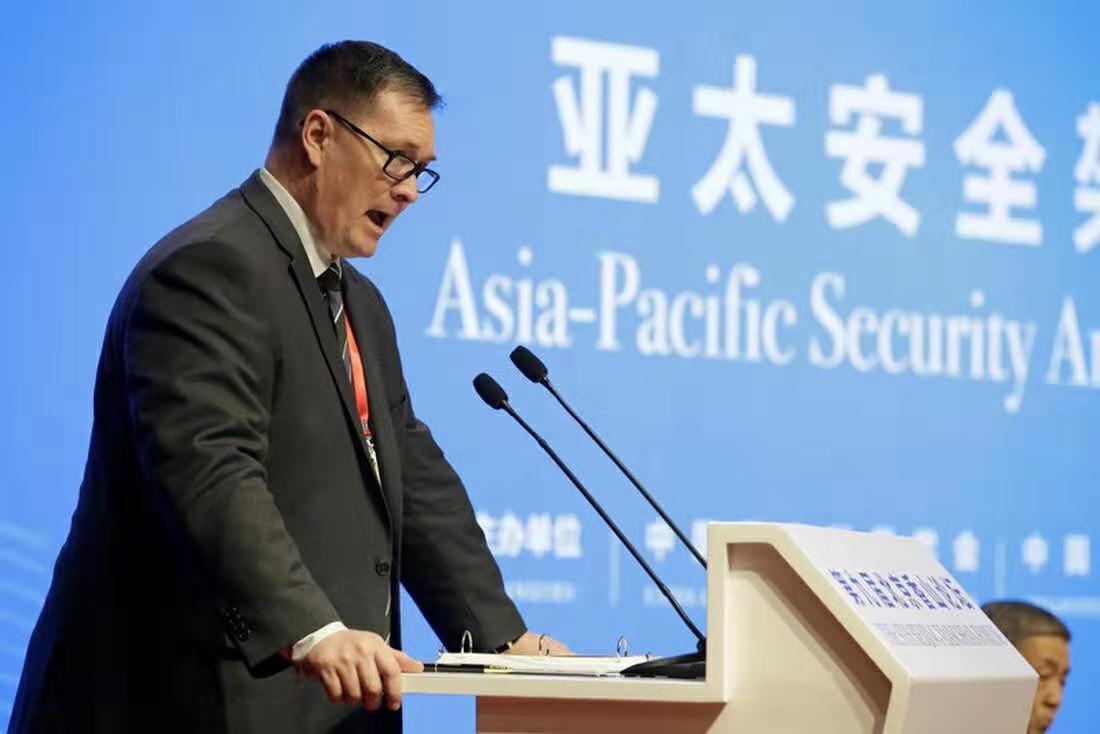
By Guo Yuandan
US Deputy Assistant Secretary of Defense Chad Sbragia said on Monday afternoon at a panel of the 9th Beijing Xiangshan Forum that the US Defense Minister made the decision to let him attend the forum this year, a platform on which he can elaborate on the US Indo-Pacific Strategy and learn about the opinions of his counterparts from other countries.
According to relevant sources, the US sends staff to the forum every year, which has been the military attaché of the US embassy in China at first, and later turned to be its domestic officials. Among them, the Presidents of the US National Defense University were sent for two years, and then in 2018, it was a dean from the affiliated college under the US National Defense University being dispatched.
For the event this year, the Pentagon has sent an official delegation led by a US Deputy Assistant Secretary of Defense (DASD) for the first time. DASD Chad Sbragia is responsible for a newly established department of the Pentagon, which was specially designated for the affairs concerning China. Some analysts believed that this move shows the changes of the US attitude toward the Beijing Xiangshan Forum held in China.
On Monday morning, Russian Defense Minister Sergei Shoigu stated at the first plenary meeting that the Indo-Pacific Strategy proposed by the US shows no clear geographic interpretation of its coverage, no specific conditions for the parties to join in, and doesn’t include all countries in the region, what’s more, its strategic objectives are also very vague.
Then Sergei Shoigu further stated that the strategy might result in the formation of so-called alliances of common interests, which is not in line with the goal of creating a single inseparable security space, and might in turn undermine the effective operation of the multilateral cooperation system in the Asia-Pacific region.
In this regard, Sbragia said that the US approach to the Indo-Pacific is that it is open and inclusive, rather than exclusive, and China is a member of the Indo-Pacific. Sbragia also reaffirmed the rules that the US has always advocated, including respect for sovereignty and independence, peaceful settlement of disputes, and respect for international rules and norms including freedom of overflight and navigation.
In his words, these rules are shared by all countries across the world besides the US, and the US supports a principle-based international order, which has been embodied in its actions taken.
Sbragia also stated that not all the countries are only willing to provide support to the US, and the US will not ask any country to choose between China and the US. The competition between the US and China does not mean conflict. The US has always been committed to building the most constructive relationship with China, to achieve a win-win situation, and thus benefit the whole world.
In addition, Sbragia responded to the opinions expressed by the participating scholars, for example, some people in the US believed that the rise of emerging countries is a threat, and breaks the existing world pattern. He said that the US does not believe that the rise of emerging countries means confrontation, which serves as an important tone and principle for the US policy in the Asia-Pacific region.
"The view of some people that the US fundamentally intends to decouple China and the US is not true. We do not adopt or advocate such a policy in fact, and our evaluation of China is objective,” said Sbragia.
"What I know is that the US is working hard to adjust the US-China relationship to create more platforms for expanding bilateral exchanges, deepening understanding, and consolidating communication in terms of crisis, so as to maintain an everlasting, more stable relationship, rather than produce difference and disconnection", added Sbragia.
Disclaimer: This article is originally published on huanqiu.com, and is translated from Chinese into English and edited by the China Military Online. The information, ideas or opinions appearing in this article do not necessarily reflect the views of eng.chinamil.com.cn.



